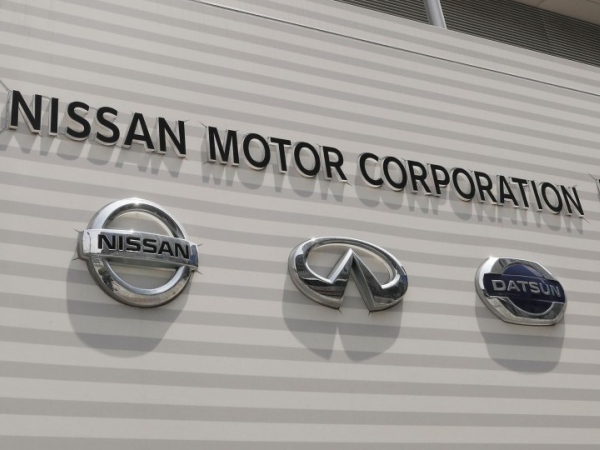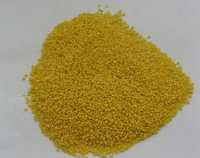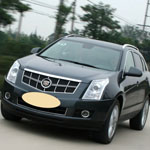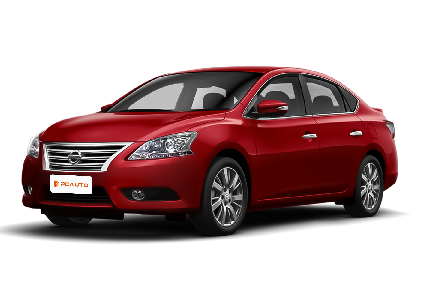Q
How much fuel does a Nissan vehicle consume per kilometer?
Nissan's fuel efficiency varies quite a bit depending on the model and engine setup. Take Malaysia's popular Nissan models, for example. The Nissan Almera, with its 1.0L turbocharged engine, has an official combined fuel consumption rating of around 5.0L/100km – that's roughly 0.05L per kilometer. On the other hand, the Nissan X-Trail with the 2.0L naturally aspirated engine comes in at about 6.5L/100km, or approximately 0.065L per kilometer.
Of course, real-world fuel economy can differ based on how you drive, the roads you're on, and how well you maintain your car. Things like frequent hard acceleration or stop-and-go city traffic can really push those numbers up. To help keep efficiency in check, it's a good idea to stick to regular maintenance – think replacing air filters and spark plugs when needed, and keeping your tire pressure at the recommended level.
With Malaysia's floating fuel price system, knowing your car's fuel consumption helps you budget for petrol more accurately. And for drivers who want even better fuel economy, Nissan's e-POWER hybrid technology – rolled out in recent years – offers a solid alternative. It's definitely worth considering if saving at the pump is a top priority for you.
Special Disclaimer: This content is published by users and does not represent the views or position of PCauto.
Related Q&A
Q
How many kilometers can a Nissan Sylphy travel on one liter of gasoline?
The fuel efficiency of the Nissan Sylphy varies depending on the specific trim and driving conditions. According to official figures, the latest Sylphy with the 1.6L naturally aspirated engine delivers around 15 to 18 kilometers per liter in combined driving. Step up to the e-POWER hybrid version, and that efficiency climbs even higher—we're talking roughly 20 to 22 km/L. Of course, your actual mileage will depend on how you drive, the roads you take, and how well you keep up with maintenance.
For Malaysian drivers, the Sylphy's fuel-sipping nature makes it a solid fit for local conditions, whether you're navigating city traffic or hitting the highway for longer trips. But it's not just about efficiency—this sedan also scores points for its comfortable ride and reputation for reliability. The spacious interior and the nice tech features thrown in are worth checking out too.
If you're in the market for an economical and practical family car, the Sylphy is definitely worth a spot on your shortlist. Do yourself a favor and head down to your nearest Nissan dealership for a test drive—there's no better way to get a real feel for how it performs and how efficiently it actually runs.
Q
What is the length of a Nissan Sylphy?
The Nissan Sylphy's overall length varies across different generations and trim levels. Take the 14th-generation model (B18 series), which is commonly seen in the Malaysian market, for example – it stretches around 4,650 millimeters (4.65 meters). That's pretty standard for a C-segment sedan, making it maneuverable enough for city driving while still offering decent cabin comfort. In Malaysia, this model has built a solid following among family buyers thanks to its fuel efficiency, reliability, and that roomy rear seat. The generous 2,715-millimeter wheelbase definitely helps with legroom back there.
Now, in Southeast Asia, the Sylphy typically goes head-to-head with the likes of the Toyota Corolla Altis and Honda Civic. But what sets it apart is its focus on comfort – the suspension does a great job soaking up bumps. If you're a Malaysian car shopper, here's the lowdown: if you clock up a lot of highway miles, the Sylphy's ProPILOT system (on higher trims) adds some handy driver assists. And for peace of mind, Nissan Malaysia's 5-year unlimited mileage warranty is a definite plus.
Size matters when it comes to parking, so it's smart to check your home parking space before you buy. It's also worth comparing it to rivals like the Mazda 3 (around 4,660mm) or Hyundai Elantra (about 4,675mm), but remember, interior space utilization can vary quite a bit between brands.
Q
What is the size of Nissan Sylphy?
The Nissan Sylphy is a pretty popular mid-size sedan in the Malaysian market. Let's talk dimensions: it stretches 4,640 mm long, 1,815 mm wide, and 1,445 mm tall, with a wheelbase of 2,712 mm. This size really translates to a roomy cabin and a comfortable drive – perfect for Malaysian families. It's on the upper end of the medium size spectrum for its class, and the boot? A solid 560 litres, which handles both daily errands and those longer road trips with ease when it comes to storage.
Styling-wise, the Sylphy rocks Nissan's latest V-Motion front end. It's not just about looks – that design actually helps widen the car's visual stance and improves aerodynamics too, which is a plus for fuel efficiency. For Malaysian buyers, the Sylphy's size and space make it ideal for city driving and family use. Throw in its good fuel economy and reputation for reliability, and it's definitely a contender worth checking out.
If the Sylphy has caught your eye, dive deeper into features like the ProPILOT driver assistance system and other tech goodies it offers. These can be real handy for adding extra convenience and peace of mind on Malaysia's roads.
Q
How much does a Nissan Sylphy cost?
In Malaysia right now, the Nissan Sylphy is priced roughly between RM90,000 to RM120,000, depending on the trim level and specs. Of course, actual prices might shift a bit based on dealer promotions or if you add on any extra accessories.
As a popular Japanese sedan, the Sylphy has built a solid rep for its comfy ride and reliable performance—total workhorses for family use or daily commuting. Under the hood, you'll find a 1.6L naturally aspirated engine that delivers smooth power and pretty decent fuel economy. On the features front, it comes with handy stuff like smart keyless entry and a reverse camera. Step up to the higher trims, and you even get Nissan's ProPILOT driver assistance system, which is a nice boost for safety.
If you're in the market for an affordable, no-nonsense sedan that gets the job done, the Sylphy's definitely worth a look. I'd recommend heading down to your local Nissan dealership for a test drive and to check out their latest deals. While you're at it, it never hurts to cross-shop against rivals like the Toyota Corolla or Honda Civic to make sure you're picking the best fit for your needs.
Q
How many liters of gasoline does a Nissan Sylphy need to travel 100 Kilometers?
The fuel efficiency of the Nissan Sylphy can vary depending on the specific trim and driving conditions. From the factory specs, the latest Sylphy delivers around 5.3 to 6.1 liters per 100 kilometers. That range mostly comes down to engine options—like the 1.6L vs. 1.8L naturally aspirated engines—and whether you opt for the CVT or manual transmission. Of course, real-world numbers will shift based on how you drive, the roads you tackle, and how well you keep up with maintenance.
For Malaysian drivers, the Sylphy stands out as a solid, no-fuss family sedan. Its fuel-sipping nature makes it perfect for those daily city commutes and longer highway runs we all do here. Plus, Nissan’s got a pretty strong service network around the country, which makes it easy to keep your car in top shape and maintain that efficiency over time.
A quick tip for owners looking to stretch every liter: smooth acceleration, smart A/C use, and regular tire pressure checks go a long way. These little habits don’t just save you money at the pump—they’ll help your Sylphy stick around for the long haul too.
Q
What is the height of a Nissan Sylphy?
The Nissan Sylphy's height varies slightly by model year and trim, but for the current generation you'll commonly find in Malaysia, it sits roughly between 1,465mm and 1,475mm tall. This sweet spot balances nimble city maneuverability with decent passenger comfort, making it a solid fit for Malaysia's mixed bag of roads—think tight urban streets to long highway cruises. Height directly impacts a car's center of gravity and drag coefficient, and Sylphy's setup does a nice job keeping things stable while also helping with fuel efficiency, which is classic Nissan prioritizing practicality. For Malaysian buyers, besides height, keep an eye on ground clearance too—usually around 135mm to 150mm. That matters for tackling those occasional rough patches or during monsoon season when roads can get tricky. Even with its moderate height, Sylphy's got ergonomic seats and a well-shaped roofline that actually frees up decent headroom for passengers, showing Nissan's cleverness with space utilization. If you're cross-shopping other sedans in this class, I'd suggest test-sitting in them and checking trunk space too—those little details really make a difference in daily use.
Q
What is the width of a Nissan Sylphy?
The Nissan Sylphy measures 1,765mm in width—solidly above average for its class in Malaysia's sedan market. That translates to some real breathing room inside and a stable feel on the road. For Malaysian drivers, this width strikes a nice sweet spot: it's not so bulky that navigating city streets becomes a hassle, yet there's plenty of comfort for passengers, which is a big plus when you're carting the family around.
Width also plays into aerodynamics and fuel efficiency, and the Sylphy does a good job balancing both. Let's be real, Malaysian roads and parking spots can be pretty tight, so size does matter when picking a car. The Sylphy's dimensions just click with local conditions.
If you're curious how it stacks up, check out rivals like the Toyota Corolla or Honda Civic—both big sellers here too. But the Sylphy keeps winning families over with its well-rounded package and that all-important comfortable ride.
Q
How fast is the Nissan Sylphy?
The Nissan Sylphy has been doing pretty well for itself in the Malaysian market. Top speed varies a bit depending on the specific trim and powertrain, but generally, the versions with the 1.6L or 1.8L naturally aspirated engines can hit around 180-190 km/h. Some turbocharged or hybrid variants might offer a better balance between power delivery and fuel efficiency, though.
What really wins over a lot of Malaysian buyers is the Sylphy's comfortable ride and solid, dependable performance – it's a solid pick whether you're navigating city streets or hitting the highway for a longer drive. Quick reality check, though: always stick to local speed limits, and Malaysian highways generally cap out at 110 km/h.
If you're after something with more zip, Nissan's got sportier models in the lineup, but the Sylphy's strong suit is how well-rounded it is as a family car. Things like that roomy interior and relatively low maintenance costs? Those are big boxes to tick for Malaysian families when they're car shopping.
Q
How much fuel does a Nissan Sylphy consume per 100km?
The fuel efficiency of the Nissan Sylphy can vary depending on the specific trim and driving conditions. According to official figures, the latest Sylphy delivers around 5.3 to 6.2 liters per 100 kilometers. That range mainly depends on the engine option—like the 1.6L or 1.8L—and whether you go for the CVT or manual transmission. But let’s be real, real-world mpg can swing based on how you drive, the roads you’re on, and how well you maintain the car. For example, if you’re stuck in KL’s stop-and-go city traffic, you’ll probably see numbers a bit higher than the official stats. Cruise at a steady pace on the highway, though, and you might even beat those figures.
For Malaysian drivers, picking the CVT-equipped Sylphy usually means smoother rides and better fuel economy—two big wins for daily commutes. And don’t sleep on regular maintenance: swapping out the air filter when needed and using the right engine oil can go a long way in keeping that fuel efficiency in check. If you’re really into stretching every liter, keep an eye on the car’s Eco mode. It tweaks throttle response and even adjusts the AC output to help you squeeze out a few more kilometers per tank.
Popular Cars
Model Year
Car Compare
Car Photo
Latest Q&A
Q
Do I need an alignment after rotation?
Whether a four-wheel alignment is needed after tire replacement depends on the actual condition of the vehicle. If only the tires are replaced and the vehicle has been driving normally without deviation, steering wheel vibration, or uneven tire wear, a four-wheel alignment is usually not required immediately, but wheel balancing must be performed to ensure stability when the wheels rotate at high speeds. However, if problems such as directional deviation, reduced steering precision, misaligned steering wheel, or abnormal tire wear (e.g., one-sided wear) occur after tire replacement, four-wheel alignment is necessary to adjust the geometric parameters of the suspension system (including caster angle, front wheel camber, etc.), thereby restoring the vehicle's straight-line driving stability and uniform tire contact with the road. Moreover, if chassis component repairs (such as suspension or steering system) are involved during tire replacement or the vehicle has been in a collision, four-wheel alignment becomes an essential step, as it can effectively reduce abnormal tire wear, improve handling safety, and lower fuel consumption. It is recommended to check the alignment parameters regularly every 20,000 kilometers or once a year. If you frequently encounter rough road conditions (such as curbs or speed bumps) during daily driving, the inspection interval should be shortened accordingly. Professional technicians can measure the data using specialized equipment and compare it with the manufacturer's specifications to determine whether adjustments are needed.
Q
Is it okay to rotate tires every 10,000 km?
Rotating tires every 10,000 kilometers is a reasonable and necessary maintenance measure, especially for fuel vehicles, as this frequency can effectively balance the wear difference between front and rear tires. Tire rotation involves regularly adjusting the installation positions of tires (e.g., moving front tires to the rear), which ensures more uniform wear across all tires, thereby extending the overall service life by approximately 20%-30%. For fuel vehicles, it is recommended to rotate tires every 10,000 kilometers, while for new energy vehicles, due to their greater weight and stronger torque output, the interval should be reduced to 8,000 kilometers. During rotation, the cross-rotation method should be employed (i.e., moving front tires to the opposite rear positions), and tire pressure should be checked simultaneously to ensure it meets the specified standards (2.3-2.5 bar for fuel vehicles, with an additional 0.2 bar for new energy vehicles). It is important to note that if a tire exhibits abnormal unilateral wear, bulges, or tread depth below 1.6 millimeters, simple rotation is not recommended and the tire should be replaced immediately. Regular monthly tire pressure checks and removal of debris from treads can further enhance tire performance and safety.
Q
What happens if you don't rotate tires?
If tire rotation is not performed regularly, it will lead to uneven tire wear, which in turn causes multiple problems. For front-wheel-drive vehicles, the front tires bear both driving and steering functions, so their wear rate is significantly faster than that of the rear tires; for rear-wheel-drive vehicles, since power is concentrated on the rear tires, the rear tires wear more noticeably. Long-term failure to rotate tires will shorten the overall tire life by 20%-40%—the front tires may be scrapped prematurely while the rear tires remain relatively new, resulting in resource waste. In addition, uneven wear reduces traction, particularly on wet surfaces, which can easily lead to skidding or a 10%-15% increase in braking distance, thereby elevating driving risks. Irregular wear also exacerbates tire noise and increases fuel consumption by 0.3-0.8 liters per 100 kilometers due to uneven rolling resistance. It is recommended to rotate tires every 10,000 to 15,000 kilometers. For front-wheel-drive vehicles, the cross-rotation method should be employed (left front to right rear, right front to left rear), while for rear-wheel-drive vehicles, the rear tires need to be crossed to the front. After rotation, tire pressure (the standard value typically ranges from 2.3 to 2.6 bar) should be verified and wheel balancing performed to prevent high-speed vibrations. If the tires exhibit irregular wear patterns or the tread depth falls below 1.6 mm, they should be replaced immediately. Regular tire rotation not only prolongs tire lifespan but also enhances fuel efficiency and driving safety. The cost of a single rotation is approximately 50 to 100 ringgit, substantially lower than the expense of premature tire replacement.
Q
Is it good to rotate car tires?
Tire rotation is an important maintenance measure to ensure even tire wear and extend service life. It is recommended to perform it every 5,000 to 10,000 kilometers or when uneven wear is detected. For front-wheel drive vehicles, the front tires wear faster as they handle steering and braking tasks, so they need to be cross-rotated with the rear tires (left front to right rear, right front to left rear). For rear-wheel drive vehicles, the rear tires should be diagonally swapped with the front tires to balance the wear of the drive wheels. If the tires have a directional tread pattern or asymmetric design, the rotation direction must be maintained, and only front-to-rear swaps on the same side are allowed to avoid affecting handling on wet and slippery roads. After rotation, the tire pressure should be adjusted to the standard for the corresponding wheel position, and it is recommended to perform dynamic balancing and four-wheel alignment simultaneously to optimize driving stability. Note that snow tires or studded tires cannot be rotated, and tires with different front and rear sizes can only be swapped left and right. Regular rotation can reduce abnormal wear (such as uneven wear or wavy patterns), improve grip and driving quietness, reduce safety hazards caused by tire problems, and save replacement costs in the long run. The specific operation should be based on the vehicle manual. If there is a lack of guidance, the cross-rotation method for bias-ply tires or the same-side rotation method for radial tires can be prioritized.
Q
How often should car tyres be rotated?
The replacement cycle of car tires should be determined by comprehensively considering factors such as service life, mileage, driving habits, and environmental conditions. Generally, it is recommended to replace them every 3 to 5 years or after 60,000 to 80,000 kilometers of driving, whichever comes first. As rubber products, tires deteriorate over time. Even if the mileage threshold hasn't been reached, immediate replacement is necessary when sidewall cracks, bulges appear, or tread depth falls below 1.6 mm (verifiable with a coin test) to ensure safety. Due to their heavier weight and stronger torque output, new energy vehicles experience accelerated tire wear. It is advisable to shorten the inspection interval to every six months, with urban commuting replacement mileage typically ranging from 42,000 to 56,000 kilometers. Regular tire rotation helps distribute wear evenly. For front-wheel-drive vehicles, front-to-rear rotation every 8,000 to 10,000 kilometers is recommended, while for new energy vehicles with higher front axle loads, this interval can be reduced to 6,000 to 8,000 kilometers. Additionally, maintaining cold tire pressure at 2.3 to 2.5 bar (add 0.2 bar for new energy vehicles) and avoiding aggressive maneuvers like rapid acceleration and hard braking can extend tire lifespan by 15% to 20%. Tires exceeding 6 years from their production date (identifiable via the DOT code on the sidewall) should be replaced regardless of apparent condition.
View MoreRelated News

Nissan's Sales in China Drop by 25.88%, Management Adjustments Underway
AshleyApr 14, 2025

How much does it cost to own a used Nissan March in Malaysia?
LienFeb 10, 2026

From Fuel to All-Electric: Looking Back at Nissan March's 40-Year Journey
AshleyFeb 9, 2026

Nissan sells Rosslyn plant in South Africa to Chery SA
WilliamJan 27, 2026

New generation Nissan Serena e-Power CKD version parameters announced, arriving in Malaysia by March 2026
RobertJan 15, 2026
View More

















Pros
Cons